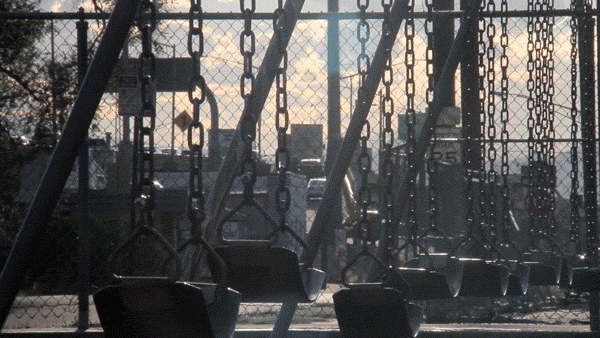
Two Denver neighborhood groups and the Colorado Latino Forum filed a civil rights complaint Wednesday against the Colorado Department of Transportation in a further attempt to stop the planned expansion of I-70 through north and northeast Denver.
"The Elyria-Swansea neighborhood was initially severed by I-70 when it was constructed in the 1960s, before Congress enacted environmental laws that would have given the residents a voice in the decision and the opportunity to fully consider and mitigate the social, economic and environmental impacts of the freeway," says the complaint, prepared for the Denver groups by the environmental legal firm Earth Justice. "The current effort to address I-70’s use and contribution to area transportation needs should not further the wrongs of the initial decision and the decades of significant adverse impacts in these neighborhoods."
Residents of Globeville and Elyria-Swansea have suffered from a legacy of pollution from factories and the highway for decades. This isn't the first lawsuit that has been filed to stop the highway expansion. Cross Community Coalition and the Elyria and Swansea Neighborhood Association, the same neighborhood organizations in the civil rights complaint, previously joined the Sierra Club to sue the Environmental Protection Agency over changes in how air quality is measured, which they argued made it easier for the highway expansion to be in compliance. That lawsuit has gone before a merits panel that will determine if there is enough of a case for the lawsuit to proceed.
While the EPA lawsuit turns on highly technical issues related to particulate pollution, the civil rights complaint made to the Federal Highway Administration focuses on social justice.
"It's kind of always been the community that everything gets dumped on," said Candi CdeBaca, of the Cross Community Coalition. A longtime community activist, CdeBaca grew up in the shadow of I-70 in Swansea. "They think that because we're the highest concentration of poverty and we're all Latino, they think we won't have the financial or social capital to fight back, especially against a big institution."

The complaint notes that federal money cannot be used to discriminate against people based on race or ethnicity and that Department of Transportation regulations require that where past discrimination has occurred, agencies take steps to ameliorate it.
The complaint also says that CDOT has never adequately evaluated the preferred alternative of people who oppose the highway expansion. That would be a re-route of I-70 along the I-270 corridor, taking the highway north of Denver through sparsely populated industrial areas where the health effects of air pollution from increased traffic would be less.
CDOT spokeswoman Rebecca White said she cannot comment on litigation, but the agency stands behind the work that was done on the expansion.
"We continue to stand behind the analysis and work with the community that we've done," she said. "What we've committed to homes and schools is really unprecedented for CDOT and reflects our commitment to really transform the highway not only for travelers but for the residents."
CDOT's plans would widen the highway to 10 lanes or 247 feet, compared to 95 to 100 feet today.
That includes a new 46th Avenue frontage road on the north and south sides of the highway. The interstate would be sunk below grade from Brighton to Colorado boulevards, something CDOT says will reduce the migration of particulates from exhaust into the neighborhood and something opponents compare to digging a giant ditch through the community. The plans include a four-acre park over a portion of the sunken highway.
To make room for the project, CDOT needs to remove 56 homes and 18 businesses. The state had bought 31 homes already.
White said the I-270 reroute simply isn't viable. Removing I-70 would require the construction of a new 46th Avenue that makes Colorado Boulevard look like a country lane. That new surface road would be constantly clogged with trucks. Safeway's distribution center alone sees more than 400 trucks a day.
"Our position continues to be that it's not an alternative that works for these communities," White said.
It's taken years of community organizing, courting of local and national advocates and fundraising to reach the point of filing this civil rights complaint, CdeBaca said.
The highways administration is expected to make a decision on the expansion early next year. Secretary of Transportation Anthony Foxx has been critical of the legacy of interstates pushed through low-income communities. It's not clear how a new secretary appointed by President-elect Donald Trump might view the project and whether that would be different than the decision the FHA would make under Foxx.
CdeBaca said she is nervous that a new administration won't be as open to a civil rights complaint. On the other hand, maybe the federal funding necessary to complete the project won't come through, she said.













